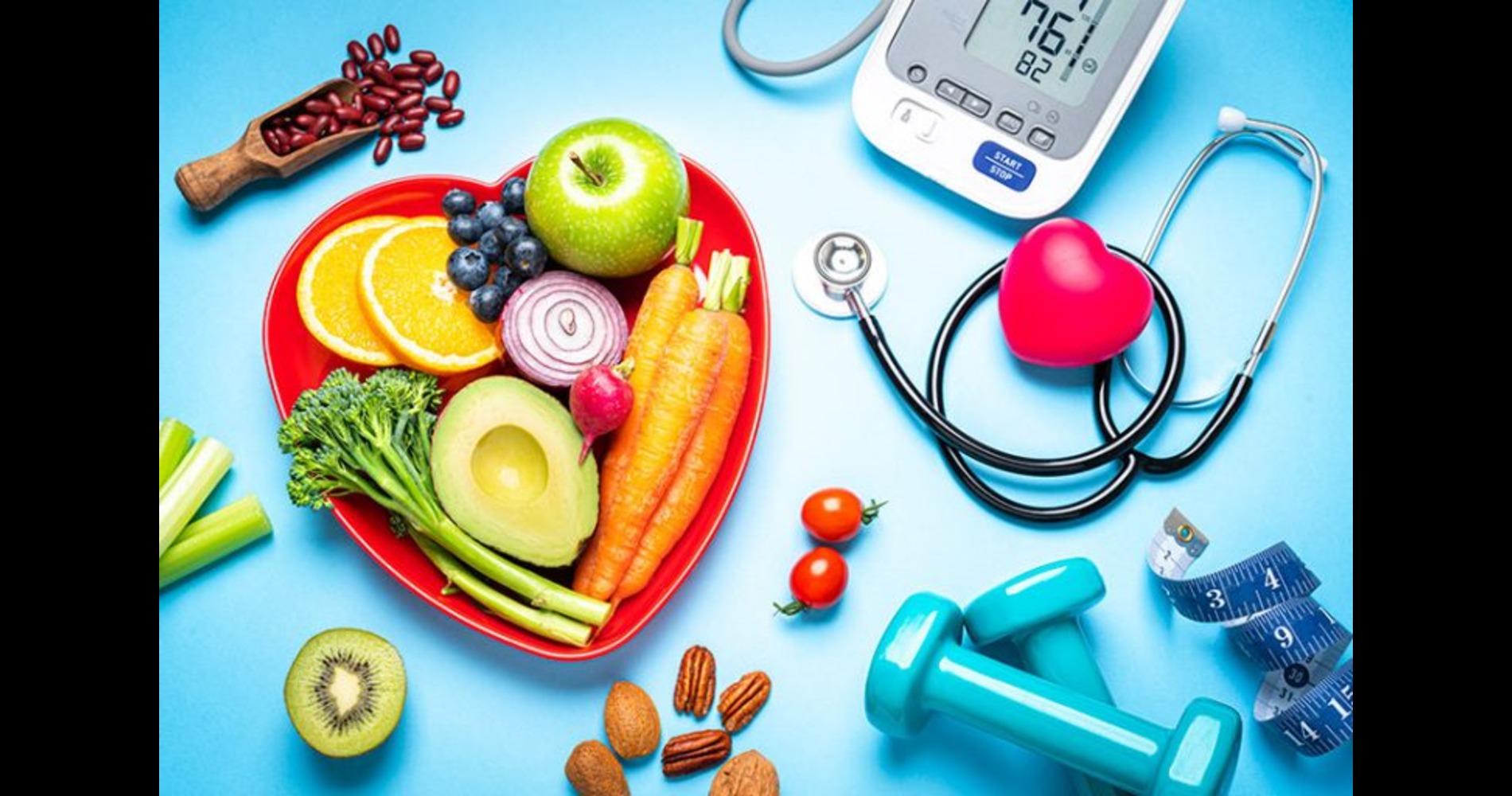With its emphasis on heart healthy foods derived from plants, a vegan diet contains an abundance of the food our bodies need to maintain good heart health.

Non-modifiable factors increase your risk of heart disease such as age, gender, family history/genes, and also ethnicity.
How can a vegan diet help maintain a healthy heart?
With its emphasis on plant foods, a vegan diet contains an abundance of the food required to maintain good heart health. This includes wholegrains, fruit, nuts, seeds, vegetables, omega-3, fibre, polyunsaturated fats and legumes.
One large-scale study found that a diet low in these foods accounted for the most deaths and disability-adjusted life years, globally.
Plants do not contain cholesterol, and, on average, those on a vegan diet have lower LDL levels.
Vegans tend to eat a lot of soluble fibre!
In the small intestine, soluble fibre draws in some of the LDL cholesterol, preventing it from entering the bloodstream, and excreting it through the faeces.
Beneficially, many plant foods also increase the amount of HDL cholesterol (the good variety), which helps to remove LDL cholesterol.
However, it is important to note that there is still a risk of LDL cholesterol.
For example, if there is a history of hypercholesterolemia and/or an excess of saturated fat in the diet from products like palm and coconut oils.
As a bonus, many plant foods also reduce the risk of hypertension.
7 top heart healthy foods
Nuts
Nuts have been found to be effective in lowering LDL cholesterol and triglycerides6. Walnuts, almonds and pistachios, in particular, were found to be effective.
A small serving of nuts is all that’s required.
Leafy green veg
Vitamin K provides a protective factor against artery blockage by removing excess calcium deposits.
One study found a 15% reduction in cardiovascular disease, associated with the consumption of green leafy vegetables. Think kale, spinach and collard greens.
Oats
Oats contain beta glucan, which is a type of viscous soluble fibre. Beta glucan reduces the amount of LDL cholesterol and, therefore, may help prevent cardiovascular disease.
Tomatoes
Lycopene rich foods, with their abundance of antioxidants, have been associated with a reduction of cardiovascular disease because they are able to reduce oxidative stress and inflammation.
Alongside tomatoes, other good sources are pink grapefruit, watermelon and pomegranate.
Flax seeds
One study conducted on hypertensive patients found a significant reduction in blood pressure when consuming a serving of flaxseed, every day, for six months.
The benefits were attributed to the ALA (plant-based omega-3) and lignans, which are a type of polyphenol in the flax seeds.
Potassium-rich food
Potassium relaxes blood vessels and excretes excess sodium. Consuming potassium rich foods has been associated with a reduction in stroke, and lowered blood pressure in people with hypertension.
Good sources include watermelon, white potatoes (skins on), spinach, sweet potatoes and cannellini beans.
Pulses
Studies have shown significantly reduced LDL cholesterol when consuming a serving of pulses (beans, lentils, peas and chickpeas) per day.
As a bonus, cannellini beans and other white beans are also a fantastic source of potassium.
What are the early symptoms of heart problems?
In the case of coronary heart disease, the formation of plaque will accumulate long before symptoms are present. This is why it is important to maintain a healthy diet throughout the life span.
Symptoms of heart problems can be mistaken for other issues.
There are many to look out for, and people don’t necessarily present with them all. Symptoms may include, chest pain (angina), heartburn type pain, shortness of breath, dizziness, palpitations, limb swelling, limb pain and/or weakness, pains in the neck, shoulder or arm on the left side, and fatigue.
If you have any concerns, please consult your doctor asap.
Apart from eating heart healthy foods, what else can you do to help prevent heart disease?
Stop smoking
Smoking significantly increases your risk of coronary heart disease and stroke. Stopping smoking is important to maintain a healthy heart, and as a bonus, a big money saver.
Exercise
Exercise is one of the best ways to improve your heart health. It can reduce cholesterol, lower blood pressure and help maintain a healthy weight. As a bonus, exercise also helps with stress relief.
If you have any medical conditions, consult your doctor before embarking on a new exercise programme.
Reduce sodium
Whilst some is essential, too much can lead to high blood pressure. The RDA is no more than 6g per day, which is roughly 1 teaspoon .
Watch out for hidden salt in ready meals, sauces, etc. Add herbs and spices for a punch of flavour.
Stress relief
Chronic stress has been associated with an increased risk of cardiovascular disease. Whilst it’s hard to avoid stress, finding coping mechanisms is important, whether that be journaling, yoga or talking to a friend.
Find what works for you and incorporate it into your day.
Alcohol reduction
Too much alcohol can lead to irregular heart rhythm, increased blood pressure and risk of stroke. You don’t have to be t-total, but a reduction can help.
Sleep
Whilst it’s tempting to watch another episode of your favourite show, skimping on sleep isn’t going to help your heart, especially those getting 6 hours sleep, or less, regularly.
Establishing a good nighttime routine is paramount.





